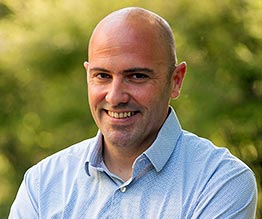Non-transitive logics: a new approach to paradoxes

Thematic
A paradox is an apparently valid argument, with apparently true premises and an apparently false conclusion. Naturally, some such appearance must be misleading. Sometimes it is particularly difficult to question the truth of the premises or the falsity of the conclusion, so the only way out is to question the logic employed in the reasoning. This can be done in different ways. In a first approach, we can question some inference used in the course of reasoning. This strategy subject , however, is often accompanied by the cost of related inferences.
Generally an argument requires the employment of several steps to reach a conclusion from certain premises. A second strategy consists in the rejection, not of a particular inference, but of certain ways of combining inferenceswithin an argument. The present project aims to study the foundations, formulation possibilities and applications of a strategy of this second strategy subject. From agreement with this strategy, the logical consequence relation may not be transitive.
Team
Pablo Cobreros, University of Navarra
Paul Egré, Institut Jean Nicod
Rosanna Keefe, University of Sheffield
Paloma Pérez-Ilzarbe, University of Navarra
David Ripley, University of Melbourne
Robert van Rooij, University of Amsterdam
Luca Tranchini, Tübingen University
2017
-
5-6 May 2017: Workshop on Logical Consequence.
2016
-
22-26 August 2016: Pablo Cobreros and José Martínez (22-26 August 2016). Introduction to Non-Classical Logics. Summer course of the Universities of Navarre.
-
R. van Rooij (2016), 'Comparing some Substructural Strategies Dealing with Vagueness', IPMU 2016, Eindhoven, The Netherlands.
R. van Rooij (2016) `Analysing communicative diversity via the Stag Hunt', ECAI 2016 International Workshop on Diversity-Aware Artificial Intelligence, The Hague, The Netherlands.
R. van Rooij (2016), `Stereotypes or Prototypes', Conference on Cognitive Structures, Düsseldorf, Germany.
-
May-July 2016: David Ripley: Towards a naive type theory in:
**History and Philosophy of Logic Session, ASL North American meeting 2016, University of Connecticut, May 2016
** Australasian Association for Logic 2016 meeting, July 2016 -
June 2016: Pablo Cobreros: Identity and the sorites paradox. Fifth Italian Conference in Analytic Ontology, Padova.
-
20-21 May 2016. Navarra Workshop on Logical Consequence
-
February 2016: David Ripley: Classical recapture via conflation in Logic and Metaphysics Workshop, CUNY Graduate Center.
-
10 February 2016: Paloma Pérez-Ilzarbe. De primo ad ultimum. The chaining of inferences and the nature of 'seguirse de'. Pamplona, University of Navarra.
2015
-
August 2015: David Ripley: Axiomatisation without cut in SADAF, Buenos Aires, August 2015
-
24, 25 and 26 August 2015: Logic and Fundamentals of Mathematics Course
-
June and July 2015:
David Ripley (2015) 'Transitivity' in:
** AAL 2015, University of Sydney, July 2015.
** GroLog, University of Groningen, June 2015
-
July 2015: David Ripley: Vagueness, tolerance, and substructural logic in AAP 2015, Macquarie University.
-
June 2015: David Ripley: Uniqueness without reflexivity or transitivity in Non-classical Abstract Logics, Unilog 5.
-
18 March 2015: 'The Sophisma Splendida: Transitivity of Consequence in Medieval Logic'. Place: classroom 30. Organised by: project Non-Transitive Logics. contact: Pablo Cobreros.
2014
-
3-4 November 2014, Mini-Course on Proof Theory by Luca Tranchini in the University of Navarra, Pamplona.
-
201X (at assessment) P. Cobreros, P Egré, D Ripley, R van Rooij, "Tolerance and degrees of truth".
-
201X (at assessment) Paul Egré (with Emmanuel Chemla), "Suszko's Problem: Mixed Consequence and Compositionality".
-
201X (accepted) P. Cobreros and L. Tranchini, "S'valuationism", in S. Oms and E. Zardini eds. The Sorites Paradox, Cambridge University Press: Cambridge.
-
201X (accepted) Paul Egré (with Jérémy Zehr), "Are Gaps preferred to Gluts? A closer look at borderline contradictions". In Elena Castroviejo, Galit Weidman Sassoon, and Louise McNally eds. The Semantics of Gradability, Vagueness, and Scale Structure - Experimental Perspectives. Language, Cognition, and Mind, Springer: Switzerland.
-
201X (accepted) Rosanna Keefe, "Prefaces, Sorites and Guides to Reasoning", in L. Walters and J. Hawthorne eds. Conditionals, Probability, and Paradox: Themes from the Philosophy of Dorothy Edgington, Oxford University Press.
-
201X (accepted) Rosanna Keefe (with Jessica Leech), "Modal essentialism and logical pluralism", in Ivette Fred and Jessica Leech eds. Being Necessary: Essays in Honour of Bob Hale, Oxford University Press.
-
201X (accepted) David Ripley, "On the 'transitivity' of consequence relations".
-
Journal of Logic and Computation, forthcoming.
-
201X (accepted) David Ripley, "Blurring: an approach to conflation", Notre Dame Journal of Formal Logic.
-
201X (accepted) Luca Tranchini, "Natural deduction for bi-intuitionistic logic" in Journal of Applied Logic.
-
201X (accepted) Luca Tranchini, "Proof-theoretic harmony: Towards an intensional account", Synthese. DOI: 10.1007/s11229-016-1200-3
-
201X (accepted) Luca Tranchini and Pablo Cobreros, "Proof analysis of global consequence", Logique et Analyse, Special Issue: How to say 'yes' or 'no': Logical approaches to modes of assertion and denial.
-
201X (accepted) P. Cobreros, P Egré, D Ripley, R van Rooij, "Tolerant Reasoning: Nontransitive or Nonmonotonic?" Synthese
-
2017. Pablo Cobreros, Lógica matemática. Diccionario Interdisciplinar Austral, Claudia E. Vanney, Ignacio Silva and Juan F. Franck eds. =http://dia.austral.edu.ar/Lógica_matemática
-
2017. Paul Egré (with E. Chemla and B. Spector). Characterizing logical consequence in many-valued logics, Journal of Logic and Computation.
-
2017. Robert van Rooij, "As knowable as possible", in C. Baskent, L. Moss and R. Ramanjum eds. Rohit Parikh on Logic, Language and Society, Springer: 53-65.
-
2017. David Ripley, "Bilateralism, coherence, warrant", in Friederike Moltmann Mark Textor eds. Act-Based Conceptions of Propositional Content, Oxford University Press.
-
2017. David Ripley, Vagueness is a kind of conflation, Logic and Logical Philosophy, 26(1):115-135.
-
2017. Luca Tranchini, Peter Schroeder-Heister, Ekman's paradox, Notre Dame Journal of Formal Logic. DOI: 10.1215/00294527-2017-0017
-
2016. P. Cobreros, P Egré, D Ripley, R van Rooij, Comparing some Substructural Strategies Dealing with Vagueness, J.P. Carvalho,M-J.Lesot, U. Kaymak, S. Vieira, B. Bouchon-Meunier, R. Yager (eds.),in Information Processing and Management of Uncertainty in Knowledge Based Systems, IPMU, Springer: 161-172.
-
2016. Pablo Cobreros, Philosophy de las matemáticas. Diccionario Interdisciplinar Austral, Claudia E. Vanney, Ignacio Silva and Juan F. Franck eds. http://dia.austral.edu.ar/ Philosophy_de_las_matemáticas
-
2016. Paloma Pérez-Ilzarbe, Jerónimo Pardo on the formality of the expository syllogism, in Formal Approaches and Natural Language in Medieval Logic (L. Cesalli et al, eds.), Barcelona-Rome: 325-340.
-
2016. Luca Tranchini, Proof-theoretic semantics, paradoxes and the distinction between sense and denotation, Journal of Logic and Computation 26(2), pp. 495-512. DOI:10.1093/logcom/exu028
-
2015. P. Cobreros, P Egré, D Ripley, R van Rooij, "Pragmatic interpretations of vague expressions: strongest meaning and nonmonotonic consequence", Journal of Philosophical Logic 44: 375-393.
-
2015. P Cobreros, P Egré, D Ripley, R van Rooij, "Vagueness, Truth and Permissive Consequence", in Acourioti, T et al. (eds) Unifying the Philosophy of Truth, Springer.
-
2015. Rosanna Keefe, Modelling Higher-Order Vagueness: Columns, Borderlines and Boundaries, Proceedings of the Aristotelian Society, Supplementary Volume 89: 89-108.
-
2015. Paloma Pérez-Ilzarbe, review de Friend, M., Pluralism in mathematics: a new position in philosophy of mathematics (2014). In Mathematical Reviews.
-
2015. David Ripley, Naive set theory and nontransitive logic, Review of Symbolic Logic, 8(3):553-571.
-
2015. David Ripley, Contraction and closure, Thought, 4(2):131-138.
-
2015. David Ripley, Comparing substructural theories of truth, Ergo, 2(13):299-328.
-
2015. David Ripley, 'Transitivity' of consequence relations, in Logic, Rationality, and Interaction: Proceedings of LORI V, Wiebe van der Hoek, Wesley Holliday and Wen-Fang Wang eds: 328-340.
-
2015. David Ripley (with Rohan French), Contractions of noncontractive consequence relations, Review of Symbolic Logic, 8(3):506-528.
-
2015. Luca Tranchini, Harmonising harmony, The Review of Symbolic Logic 8 (3): 411-423. DOI: 10.1017/S175502020315000179
-
2014. P. Cobreros, P Egré, D Ripley, R van Rooij, Priest's motorbike and tolerant identity. In Roberto Ciuni, Heinrich Wansing, Caroline Wilkommen, Recent Trends in Philosophical Logic: 75-85.
-
2014. Rosanna Keefe, What Logical Pluralism Cannot Be, Synthese 191: 1375-1390.
-
2014. Paloma Pérez-Ilzarbe, María Cerezo, Truth and Bivalence in Aristotle: An Investigation into the Structure of Saying, in N. Öffenberger, A. Vigo, eds: Logik, Naturphilosophie, Dialektik. Neue internationale Beiträge zur modernen Deutung der Aristotelischen Logik Olms, Hildesheim/Zürich/New York: 75-103.
-
2014. Paloma Pérez-Ilzarbe, review de Oliver, A. and Smiley, T., Plural logic (2013). In Mathematical Reviews.
-
2014. Robert van Rooij, Tolerant identity, in D. Gutzmann, J. Köpping, and C. Meier eds. Approaches to Meaning: Composition, Values, and Interpretation, Brill, Leiden:187-202.
Contact
Pablo Cobreros Bordenave
pcobreros@unav.es
Campus University s/n
31009 Pamplona, Spain
+34 948 425 600
Funded by:

project FFI2013-46451-P
